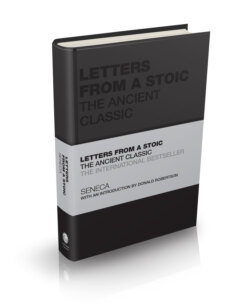Читать книгу Letters from a Stoic - Donald Robertson - Страница 22
EPICUREANISM VS STOICISM
ОглавлениеIt's striking that Seneca often mentions Epicurus and his philosophy, in seemingly favourable terms, throughout the first thirty or so letters, and occasionally thereafter. Some have taken this to mean that Seneca's thought was eclectic or that he was sympathetic to Epicurean philosophy, as opposed to Stoic teachings only. I think this is mistaken. Seneca elsewhere is just as scathing about the Epicureans as Epictetus and other Stoics were. For instance, in On Benefits, he writes:
In this part of the subject we oppose the Epicureans, an effeminate and dreamy sect who philosophise in their own paradise, amongst whom virtue is the handmaid of pleasures, obeys them, is subject to them, and regards them as superior to itself. (On Benefits, 4.2)
When he praises Epicurus, it's typically an example of a clever argumentative strategy: to praise the thinker's character before attacking his opinions. (In a sense, this is the opposite of the ad hominem fallacy, which attacks the character in order to try to refute the ideas.) Although Seneca says that Epicurean philosophy contains a few good sayings, he also subtly undermines their value by claiming that they're commonly found also in the writings of other authors. It's as though he's saying, as we would put it today, what's good in Epicurus isn't original and what's original isn't good. In Letter 2, where Seneca says that he's happy to sneak over to the ‘enemy camp’ in order to steal some of their ideas, Epicureans are nevertheless ‘the enemy’. These little nuances are typical of Seneca's style of writing.
It's clear, and in fact one of Seneca's major themes, that he believes Epicurus was wrong to view the goal of life as consisting in pleasure, even when construed as the stable pleasure of total peace of mind (ataraxia). The true goal of life, for Seneca, as for all Stoics, is virtue (arete), which we could also describe as a form of moral wisdom.
The Moral Letters provide an education in how to live wisely, by seeing beyond the value mistakenly invested in external goods such as wealth and reputation by the majority of people. Instead, the Stoic Sage lives in accord with virtue, which he views as its own reward. Even though Seneca may have failed to embody this philosophy in practice, it is nevertheless the type of person he clearly wished he could have been, and perhaps wanted to become until the end.
